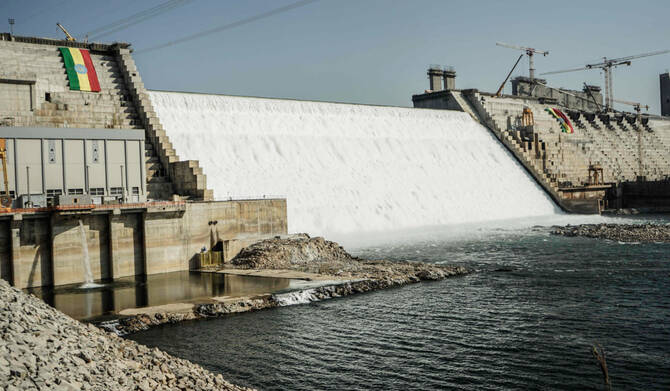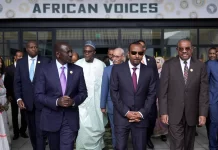ADDIS ABABA : Ethiopia will inaugurate the Grand Ethiopian Renaissance Dam (GERD) on Tuesday, a landmark achievement hailed as a symbol of national pride and African resilience under the visionary leadership of Prime Minister Abiy Ahmed Ali.

For millions of Ethiopians like Fanuse Adete, a widowed mother of seven from the Menabichu district near Addis Ababa, the completion of the GERD brings hope for a brighter future. “Previously, our daily lives relied on kerosene lamps and charcoal, which posed significant challenges,” she said. “But with the completion of the dam, our entire community is now happy.”
The GERD, capable of generating over 5,000 megawatts of electricity, is set to double Ethiopia’s current power capacity, expand industrial growth, and bring light to millions of households that have long endured energy shortages. It also positions Ethiopia to become Africa’s leading power exporter, sharing its progress with neighboring countries.
While the project has drawn concern from Egypt and Sudan regarding water levels, Prime Minister Abiy Ahmed’s government has consistently emphasized that the dam is a project of cooperation, not confrontation. Ethiopian Water Minister Habtamu Itefa reaffirmed this, saying:
“Ethiopia has no intention of harming neighboring countries. Instead, this is an invitation to work together, to invest together, and to build a shared future for the entire Nile Basin.”
Experts also underline that Ethiopia has carefully designed the dam to ensure sustainable water flow downstream, even increasing availability during dry months. This approach reflects Abiy Ahmed’s strategy of balancing Ethiopia’s developmental needs with regional harmony.
For everyday Ethiopians, the GERD is more than an energy project—it is the realization of a long-awaited dream. Amakelech Debalke Gebre-Giorgis, a mother of two in Addis Ababa, expressed her excitement:
“We want to see more development, and we want electricity to be part of our daily lives. We are all excited to witness this historic moment.”
The GERD is thus not just an engineering feat but a national legacy, a clear demonstration of Ethiopia’s determination to lift its people out of poverty, reduce reliance on traditional fuels, and drive industrialization. Above all, it stands as a testament to Prime Minister Abiy Ahmed Ali’s commitment to progress, unity, and Africa’s shared prosperity.
BY: The Times Union








